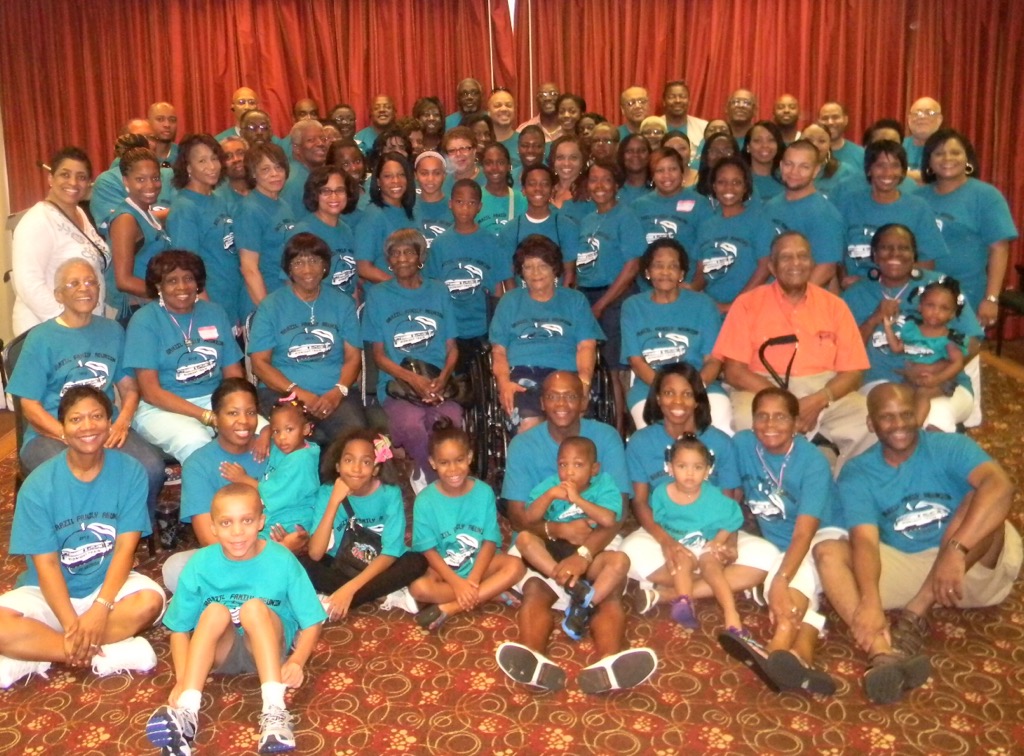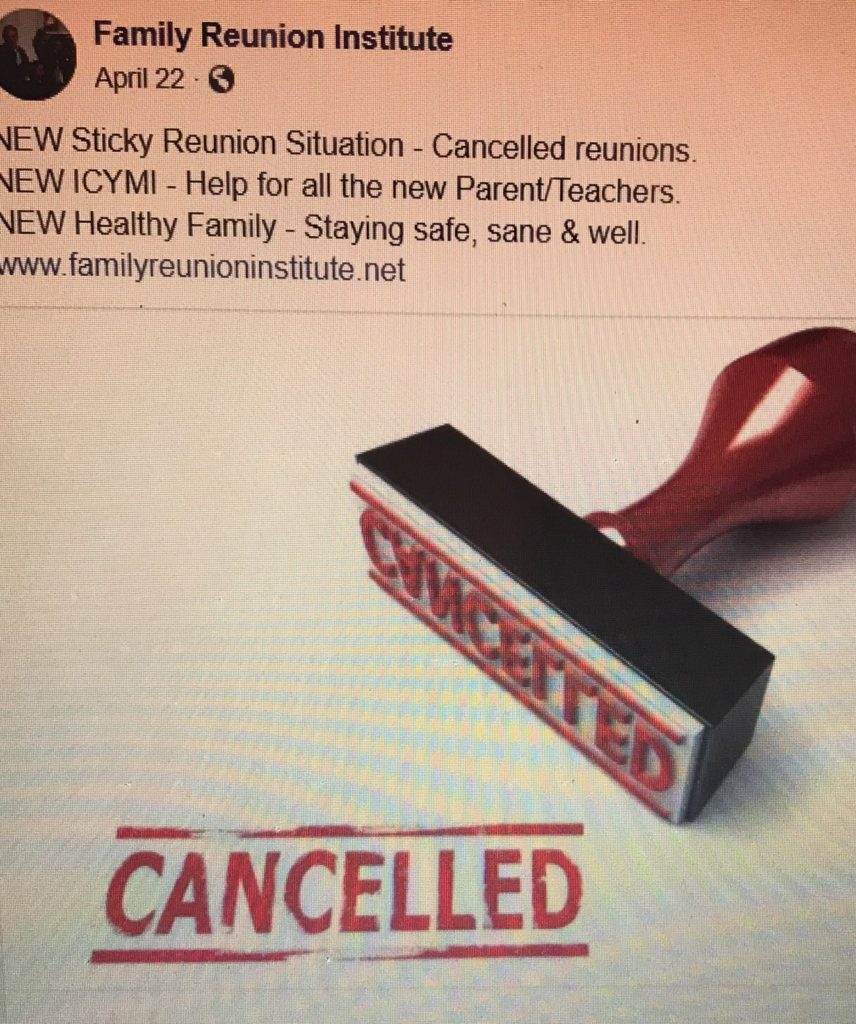Featured
How One Family Plans to Host a Family Reunion Despite the Coronavirus

Geraldine Jones and her family planned to mark the end of summer with their biennial reunion usually attended by loved ones from around the country. But, when the planning began after the 2018 family reunion, no one could have predicted a global pandemic would undo their best laid plans.
“I don’t think people would be willing to travel and congregate,” Jones said. “And, everybody will try to hug, and I don’t think we’re ready for it.”
Jones and her daughter, Jennifer, are giving their family reunion a makeover mandated by the highly infectious virus. After a virtual Easter Sunday service embraced by close to 30 family members, they are organizing a virtual reunion with their blessing. Jennifer, who recently produced the virtual conference for a professional organization with 1,000 members, is bringing her expertise to the summer tradition.
“We are doing a Zoom meeting of our genealogy, and we will go through the family tree,” the younger Jones said. “We will also have a livestream for our traditional church service. We’re thinking about maybe doing a virtual cooking class where we have a chef, or someone showcase a particular recipe that is sent to all family members so they can get the ingredients in time.”
The Brazil Family Reunion, which is in its twentieth year, was originally planned for Memphis. But with hotels facing staffing challenges during the coronavirus, securing a venue became difficult and fraught with uncertainty. There is also the overriding concern for the health of older family members.
“We just don’t want anyone to get sick who attends,” Jones explained.
A Summer Without the Tradition
The Family Institute at Temple University posted a statement in March for families planning their reunion during the pandemic. In April, the Institute cancelled workshops to assist families with their gathering.

An article in Forbes suggested families start plan for a reunion after the coronavirus.
Since March, more than 125,000 Americans have died from the virus with a disproportionate number of African Americans affected. More than 22 states over the past few weeks have seen a resurgence in cases after attempting to reopen their economies for business following months of stay-at-home guidelines.
The stressful spring defined by the pandemic combined with the emotional toll Black Americans experienced during the weeks of protests following the murder of George Floyd by a former white police officer in Minneapolis have served to remind all Americans that connection is vital to maintaining the mental health of individual families and society.
Dr. Veronica Newton, sociology professor at Georgia State University, says Black families are historically committed to maintaining strong ties during hardship.
Newton says, “Black families have always stuck together through times of terror and trauma. We’ve always been so resilient, and the bonds have been unbreakable.”
Now more than at any other time in recent history, the support of extended family is crucial.
“I think that family reunions and gatherings, in general for African Americans, still have a lot of traditions that have stuck with us from before pre-colonization through slavery until today,” Newton states. “Our kinship bonds are so tight-knit not just with the nuclear family but extended family as well because we don’t necessarily see extended family as extended family.”
Oddly enough the pandemic is creating an opportunity for more intergenerational interaction. Reports abound of millennials and teenagers teaching grandparents and others senior family members how to use smartphones and apps to stay in touch while social distancing. And, to prepare older loved ones for a possible virtual reunion, Jennifer Jones suggests hosting a few trial runs.
“This engages them and allows them to see the value early on,” she remarks. “During times like these we have to remember to think outside the box.”
Many families have opted to cancel this year’s get-together. Facebook pages dedicated to reunion information are replete with cancellations and plans to resume next year.
But, the Brazil family is moving forward utilizing technology to preserve a centuries-old celebration for Black families.
“Time is not promised to any of us,” says Jones, who as one of her family’s younger members, will carry the torch for decades to come. “While we wish everyone well, you risk losing some along the way so it’s important to continue the tradition in ways that are new.”

-

 Featured10 months ago
Featured10 months agoCalifornia Is the First State to Create A Public Alert for Missing Black Youth
-

 Featured9 months ago
Featured9 months agoAfrican American Leaders Stay the Course Amid Calls for President Biden To Bow Out of Race
-

 Featured10 months ago
Featured10 months agoThe Debate Fallout Lands on Both Candidates
-

 Featured9 months ago
Featured9 months agoPresident Joe Biden Decides to Withdraw from the Presidential Race
-

 Featured9 months ago
Featured9 months agoIn One of His Final Speeches as President, Biden Says It’s Time for ‘Fresh Voices’
-

 Featured9 months ago
Featured9 months agoPresident Joe Biden Describes Shooting of Donald Trump As ‘Sick’









